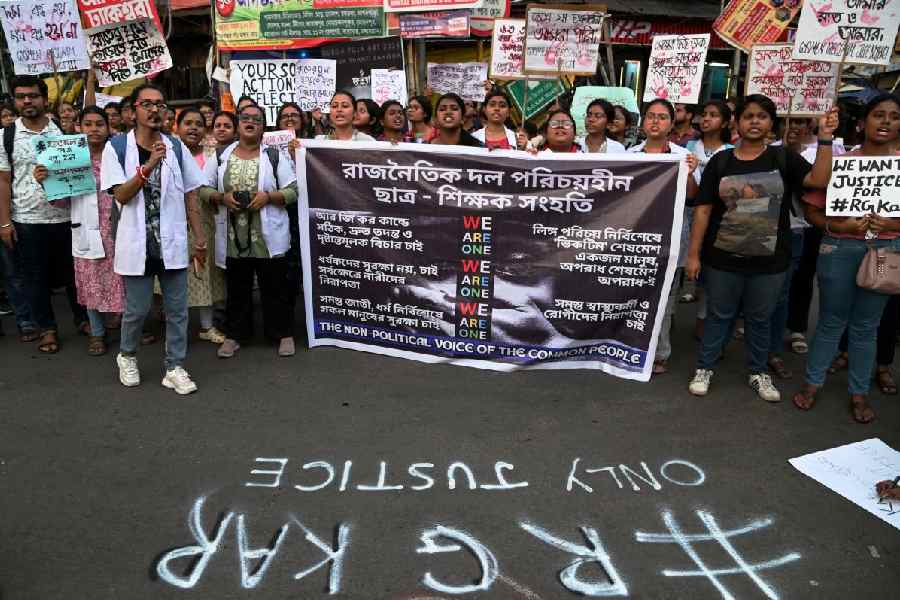The scale of the protests over the rape and murder of the doctor in R.G. Kar Medical College and Hospital is unprecedented. On August 14, protests exploded not just within the city but in the districts and the rest of India as well. The doctor’s death opened the floodgates of outrage, perhaps more so because she was a young healer, on duty inside a government hospital, where, apparently, a civic volunteer with ‘connections’ wandered in and out as he pleased. That brought together many thousands of people whose anger was further fuelled by the government’s missteps and apparent lack of empathy and the police’s evasiveness, which seemed to suggest that something was being covered up. The rage is genuine, the cry for justice passionate. The fury is also the involuntary expression of other discontents that have been simmering, especially in and around the city.
And the protests continue. Junior doctors did not go back to work even after a request from the Supreme Court. Their chief demand is justice. There can be, as the protesting doctors and enraged citizens have said, no compromise with justice. But a delicate quandary confronts the striking doctors: their ceasework has had consequences on their noble profession. The Hippocratic oath demands high ethical standards and an unfailing commitment from the fraternity of physicians towards their patients. Unfortunately, the righteous protests led to serious disruptions in public health services. Many patients, with limited means and having travelled great distances, found themselves in government hospitals suffering from the paucity of attending doctors. Hospital admissions had to be postponed while waiting time outside outpatient departments got stretched. Several scheduled surgeries were deferred as well.
There have been other glimpses of the underbelly of the protests — rumours, fake news and anti-government narratives that are being consumed by numerous people as the truth even though they may have nothing to do with facts. Such has been the blinding nature of the public anger that crucial questions have gone unasked as, for example, how was it possible for a doctor from a particular organisation to get hold of the forensic report and declare how much fluid was found? Half-truths, speculations and falsehoods, abetted by the poor, often opaque, administrative response, have amplified the trust deficit, providing greater momentum to conspiracy theories. Social media, as always, has remained a verdant source of unverified narratives.
The doctor’s death, in spite of the genuine anger around it, has also become a site for negotiation for various interests. For instance, the political Opposition, riding the crest of the wave of people’s anger, has called for the chief minister’s resignation. Apart from justice and transparency, the protesting doctors have also demanded the ‘arrest of all those involved in the crime’, even though whether the criminal is one or many remains unknown. This is an instance of negotiation too, the outcome of which is uncertain.
Grievances, interests and influences, benevolent or otherwise, all converge in a people’s movement of this scale. Mourning, too, takes different forms. But the distractions and deleterious elements must not make the mourners lose sight of the mourned.











